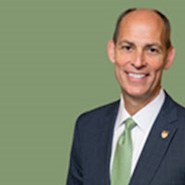
By Mona Savino & Thomas Smith, III
Situation
In the process of preparing a geotechnical report for a high-rise apartment project proposed by a client, an engineer and his supervisor plagiarized a report prepared by another engineering firm for a similar project. The engineer writing the report in question had obtained a copy of the report prepared by the other engineering firm from his supervisor, who furnished it to him in an effort to assist him in preparing the report. The engineer liked the style of writing in that report and decided to use language from it in his own report. This language, however, did not relate to or affect the technical conclusions and recommendations of the report in question. The time frame for completing the report was very tight, and the supervisor, who was listed as a coauthor of the report, approved it after evaluating the technical issues but without thoroughly reviewing the background information.
Question
Did the engineer, his supervisor, or both violate ASCE's Code of Ethics? According to canon 5(e) of the code, "Engineers shall give proper credit for engineering work to those to whom credit is due, and shall recognize the proprietary interests of others. Whenever possible, they shall name the person or persons who may be responsible for designs, inventions, writings, or other accomplishments."
Plagiarizing, or publishing someone else's written work as if it were one's own, is a violation of canon 5(e). This is a serious offense, equivalent to the theft of someone's property.
Discussion
In this particular case, the CPC--the body responsible for investigating ethics complaints against ASCE members and recommending sanctions, when appropriate, to the Board of Direction and the Executive Committee--determined that both the engineer who authored the report and his supervisor were in violation of the Code of Ethics. The fact that the plagiarized material did not relate to or affect the technical conclusions or recommendations of the member is not relevant to the issue of whether or not the code was violated. Neither is the fact that the engineers had little time in which to meet a deadline. A person simply must not pass off another's work as his or her own. The engineer who authored the report in question stated that he considered the language he appropriated to be verbiage and not a proprietary work product. This does not change the fact that someone else wrote those words.
Because of the seriousness of this offense, the possible sanctions included expulsion from the Society. However, in the course of its investigation of this matter, the CPC did weigh many of the supporting facts of this case when determining what to recommend as sanctions against the engineers. It considered the fact that, as mentioned above, the plagiarized material did not relate to or affect the technical conclusions or recommendations of the report. The engineers stated that they liked the style of writing of the other report and were attempting to adhere to that style, not copy the proprietary work of the firm that authored the report. This lack of intent to commit the act was an important factor in determining what sanctions were in order, as was the fact that the engineers took full responsibility for their actions and took steps to make amends. The engineers recognized their mistake and sent a letter of apology to the authors of the original report. These facts were important in the CPC's decision to recommend not that the members be expelled but that their memberships be suspended for one year. Additionally, the CPC reported this matter to the members' state licensing board.
This scenario illustrates very well the type of problems that can arise from a simple act of carelessness. Not only did the engineers send a letter of apology; they also lost their bonuses for that year. This matter brought embarrassment both to the engineers and to their firm. Engineers, like all professionals, must exercise great care in practicing their profession and not let everyday pressures cause them to cut corners or be careless. These engineers did not set out to plagiarize the work of their colleagues, yet the results of their actions affected not only themselves but also their firm. This case also highlights the responsibility of a supervisor. Although the supervisor did not make the decision to use the language from the other firm's report, he was held accountable for that decision because he approved the report without taking the time to thoroughly review it.
© ASCE, ASCE News, April, 2005



